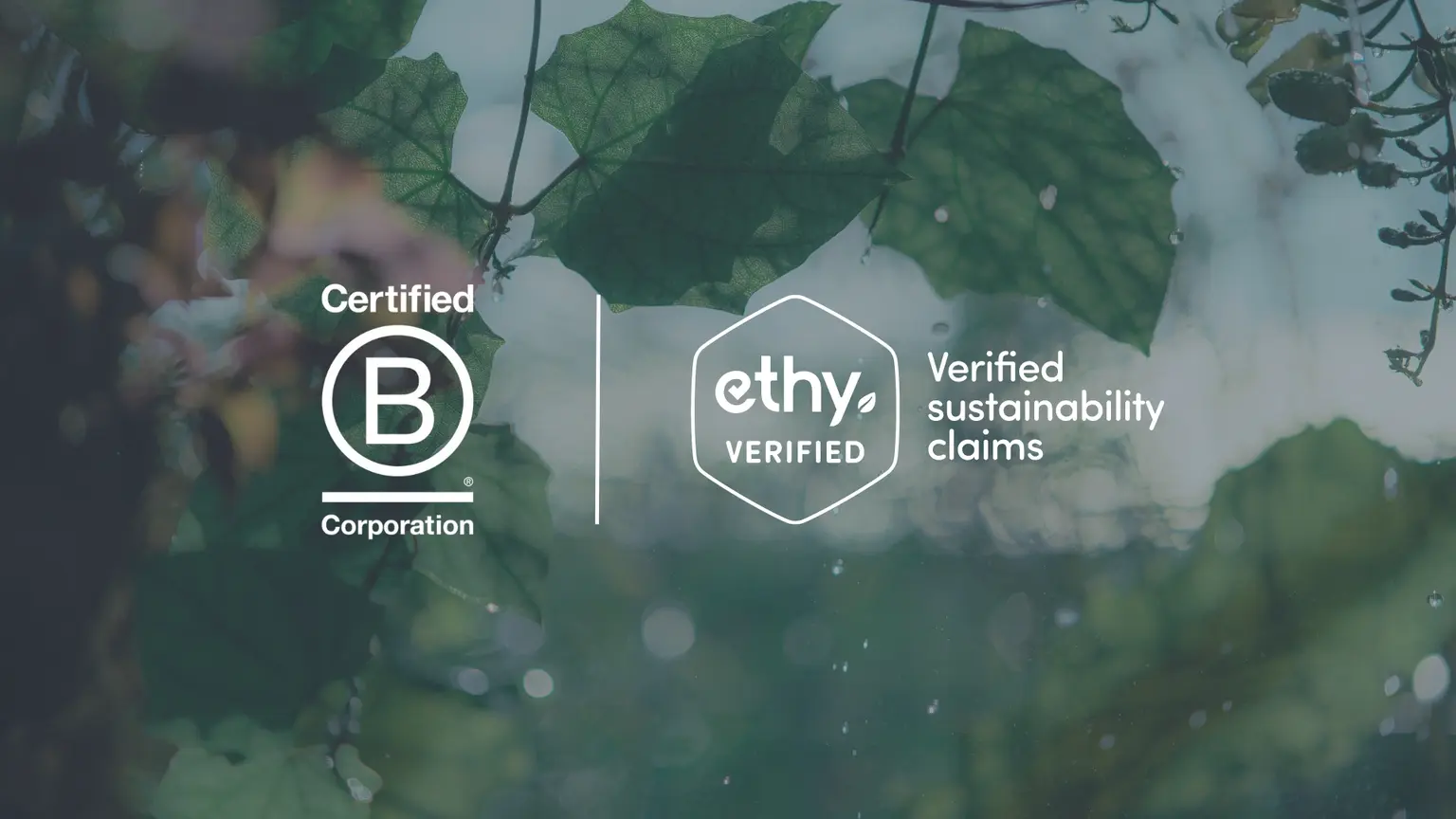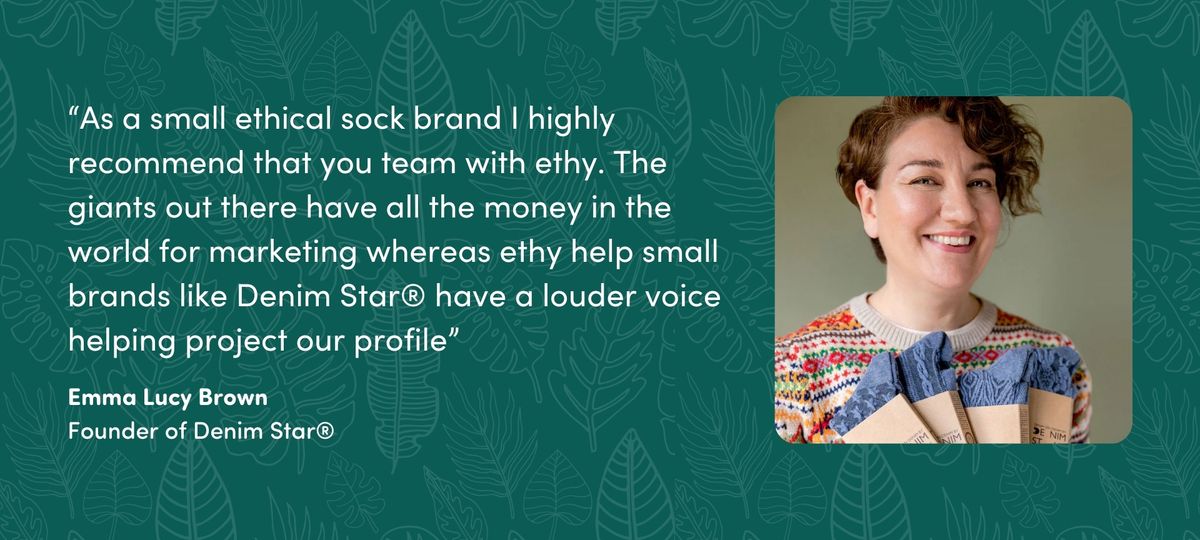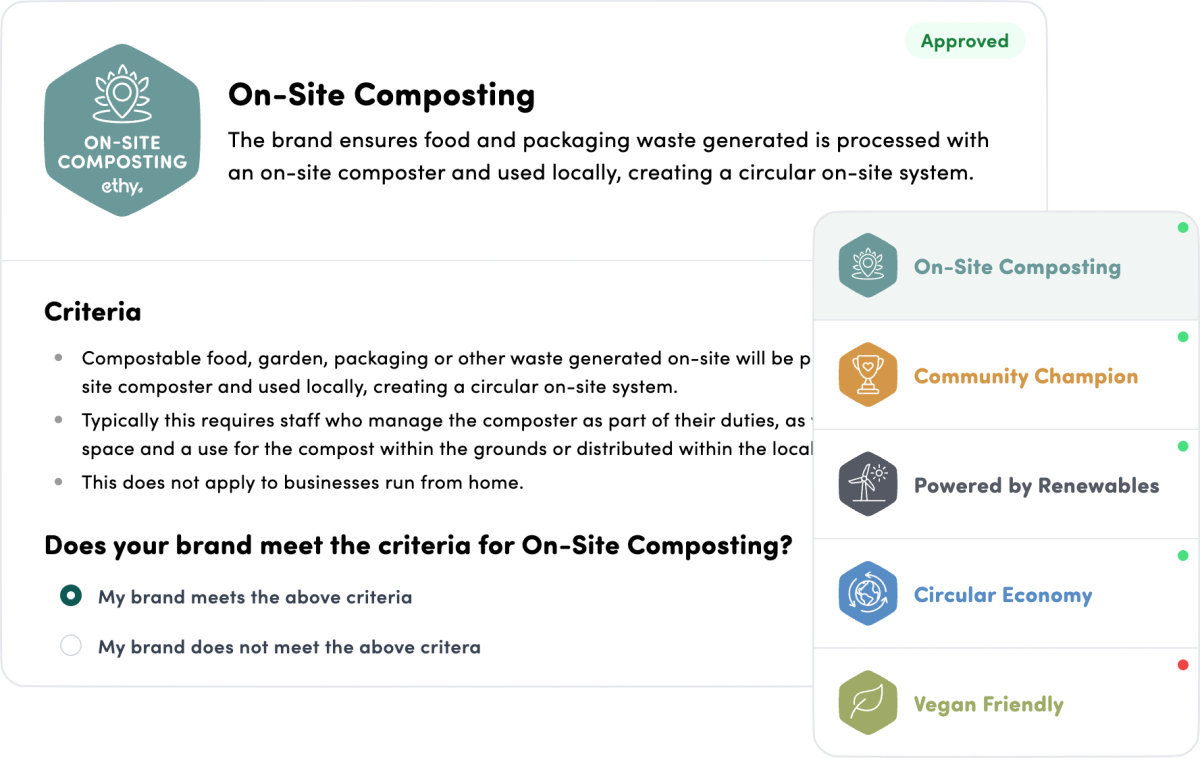
There can be no doubt that B Corp is widely considered the gold standard for sustainability certification, boasting over 1,800 B Corps in the UK, many of which are also ethy verified businesses. B Corp certification is a powerful signifier of a business's dedication to meeting stringent standards and going beyond the traditional focus on just profitability. B Corps prioritise the triple bottom line, using the power of business to address social and environmental challenges.
While B Corp is an important acknowledgment of responsible business practices, it is not without its limitations, and merely being a B Corp may not always be enough, particularly from a customer standpoint. For instance, B Corp isn't designed to showcase the specific sustainability initiatives businesses undertake, and thus doesn’t offer much context behind the B. Additionally, there’s some concerns regarding feasibility for small businesses to become B Corps, taking into account the associated costs and review process, which typically lasts between 6 to 10 months.
Such considerations lead many businesses to explore alternative solutions, like ethy, to improve their overall sustainability certification and communications approach. So why do certain businesses choose ethy over B Corp, and similarly, why do many B Corps find value in joining ethy too? The following article will explore some of the key differences, shedding light on the reasons behind these choices.
ethy's ecolabels vs. the B Corp mark
While the B Corp mark is recognised as a symbol of trust and credibility for responsible business, it does not intend to provide transparency into a business's specific sustainability efforts. With 44% of global consumers expressing a lack of information to make responsible choices, ethy addresses this gap by signposting the particular environmental and social efforts of the business.

In fact, ethy’s model highlights specific initiatives across 40+ industry-backed sustainability standards. These standards cover aspects like using renewable energy and paying the living wage, giving consumers a much clearer picture. Used collectively, ecolabels offer a snapshot of the business’s overall sustainability journey while providing assurance that each claim has been backed up with proof.
Lower fees for growing businesses
Unlike B Corp, where substantial licensing fees can be a blocker, ethy’s pricing model ensures accessibility for smaller businesses. Our fee structure, which is approximately half that of B Corp, matches the business's annual revenue, catering to brands of all sizes. Moreover, by offering a monthly payment option, businesses can spread the cost over a 12-month period instead of making a large annual payment. You can view our pricing model here.

Robust but efficient assessment process
Recognising time and resource constraints faced by many small businesses, lots of them can't (or don't want to) wait for the 6-10 month B Corp review process. In contrast, ethy's assessment process is much quicker, taking just two weeks on average. We've developed a user-friendly digital platform for assessment, and businesses can decide how many sustainability standards they want to apply for, with the option to apply for more later at no extra cost. To further expedite the process, ethy assigns a dedicated account manager to guide businesses through the application, ensuring a swift certification experience.

A helping hand on your sustainability journey
ethy offers more than just certification – we provide free ongoing strategy support to help businesses adopt new sustainable practices. Our framework assists businesses in setting goals and creating a roadmap for environmental and social responsibility. Similar to B Corp, we emphasise community by hosting regular webinars, networking sessions, and events to share ideas and inspire collective action. This ongoing support ensures that verified businesses not only meet but continuously improve their sustainability efforts.
Summary
To round up, while B Corp stands as a widely recognised gold standard for sustainability certification, it faces certain limitations in showcasing specific sustainability initiatives and accommodating small businesses in particular. Many businesses, seeking a more tailored, transparent, and efficient certification approach, turn to ethy. ethy’s focus is on providing a clearer picture of impact across various sustainability standards, fostering transparency and informed consumer choices. The efficient two-week assessment process, user-friendly digital platform, and tailored fee structure make ethy an accessible choice for businesses of all sizes.
Subscribe to ethy insights newsletter
Stay up to date on the latest industry news, research, blogs, events, and webinars. Tell us a little bit about yourself to help us deliver the information you care about.